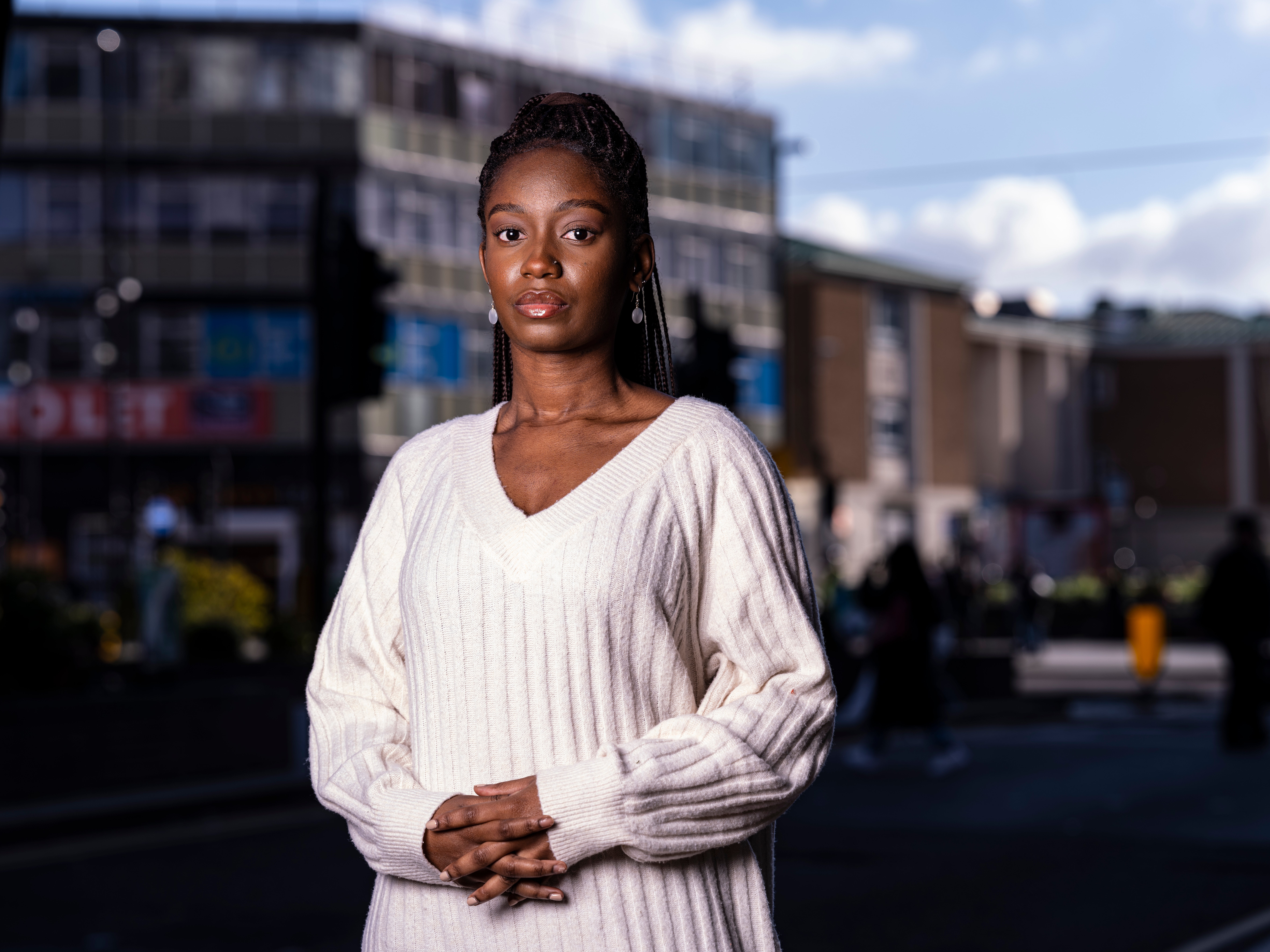
Georgie Pryce-Greene always thought she’d go to university. Instead, the 23-year-old from south-east London has deferred her place. She is now living at home and working as a content creator. “I reckon I feel burnt out every couple of weeks,” she says. “It’s a multitude of things but I notice that I start missing deadlines or forgetting stuff and feeling overwhelmed. I wanted to have that uni experience but in reality it was just 30 people on a Zoom lecture getting eye strain and paying nine grand for the privilege. I couldn’t afford to go back to studying now anyway. I think about money almost constantly and I can’t plan for the future.”

New research published today by Virgin Money has found that, although we’re all feeling the doom and gloom, young Londoners might be experiencing it more intensely than any other generation. More than 70 per cent of those surveyed said they were fearful about how the current economic climate would impact their futures. They are the most financially conscious generation by far, and most don’t have credit.
Alice Stapleton is a careers coach who works with Gen Z. She believes the under-26s have “the worst collection of stressors” of any age group — thanks to a variety of factors ranging from lack of power at work to financial instability, to the rental market crisis. A survey last year from jobs website Indeed showed Gen Z workers were reporting the highest rates of burnout.
“The weariness of the past two years underpinned by uncertainty and change, at a pivotal and life-forming stage of their lives, has led to complete exhaustion for a lot of clients I work with,” says Alice. “Some have had their education severely disrupted — the last form of structure in their lives before adulthood. Many are living at home getting second-hand stress from their parents, or feeling a pressurised and tense family environment. Then you add career demands on top of that. We’re all juggling high volumes of work but Gen Z has the least ‘workplace capital’, which means less power to set boundaries and say no to tasks.”
Finn Degg, 24, from Hackney, was working at an accountancy firm until August when he was signed off with stress. “My team lost two people, and I was told I’d need to do their roles too, with no promotion or pay rise offered,” he says. “I found myself working until 1am to catch up and then not starting work until 11.30 in the morning. I had to do really boring tasks and often thought ‘What’s the point?’ and would open my laptop and stare into space. Some days, I was doing the bare minimum possible because I wanted to get fired. It was only when I spoke to my housemate that I realised I had a problem.”
Indeed, what has been dubbed ‘quiet quitting’ might in fact have a lot to do with burnout. A study last week found that 46 per cent of Gen Z Brits often feel tired, helpless, or lonely at work. “I think this generation has received a lot of flack for being lazy but actually they feel hopelessness and dread,” says Samantha Hornby, CEO of the app ERIC, which helps young people find jobs. “There’s this expectation that your early twenties are when you have the energy and the time to work your hardest, which is fine if you have an outlet for that stress but this age group are giving up on gym memberships and nights out and holidays because they can’t afford them.”
Hornby also points to the “toxic” normalisation of hustle culture, which particularly affects this cohort. Microsoft’s latest Work Trend Index, released in March, showed 70 per cent of Gen Z respondents were considering earning additional income via a side project in the next year. “A lot of these aren’t passion projects, they’re young people joining the gig economy because they can’t survive on their low wages,” says Hornby.
But Gen Z-ers who embraced a side hustle and created a personal brand are now discovering there’s no off switch when you mine your personal life for a pay cheque.
Yinesakia Bawunmia, 24, from south London, says she feels under constant pressure to build her profile. “I graduated in 2020, so right into the pandemic,” she says. “It was really hard to find a job and I had to go on Universal Credit. I worked as a teaching assistant, and now I’m doing a writing course and interning at an app, but I feel like I always need to be updating social media and LinkedIn to set myself apart from other graduates. I see what my friends are doing and it always feels like more than me. I just want to press pause and stop for a while.”

Even younger members of Gen Z who haven’t entered the workplace yet are feeling the strain. Ceri Cooper-Davies, 21, from Acton, is in her final year of university and is worrying about how much debt she’ll be graduating with. “I’ve got two older brothers and they didn’t have to pay nearly as much for uni as me,” she says. “It feels really unfair. Then Covid completely disrupted my experience. In my second year I could barely leave the house and my mental health was very low. And now, because my loan hasn’t gone up, I can’t afford to go out. As it is, I don’t know how I’m going to stretch my September loan until January.”
A 2021 Deloitte survey found that 46 per cent of Gen Z respondents felt stressed all or most of the time about their financial circumstances. And many are turning to desperate measures. Last month, a study by Student Beans found that one in 10 students have thought about shoplifting to get by. Yet student life could be set to get even more expensive, as university bosses recently called for a rise in tuition fees in line with inflation, up to £13,000 a year.
And while older millennials might still have a distant dream of a good retirement, for Gen Z that may not be a possibility. A recent report found that because of inflation, the average saver would have to boost their pension pot by at least £777,000 over their working lives to ensure a ‘comfortable’ time.
If this generation are looking ahead to the future, then they have more pressing issues to worry about. “Climate change feels like a massive weight on my mind,” says Ceri. “My friends and I talk about it constantly and it feels like no one is doing anything about it, which is really frustrating.”
Alice Stapleton says she advises her Gen Z clients to acknowledge that these feelings are completely normal and all down to the unique period of time we’re living through. “On a more optimistic note, I think this generation is better than any before at talking about their mental health,” she says. “And that could bring really positive changes to the workforce as a whole.”
Georgie Pryce-Greene has her own strategies for coping with burnout. “I put the iPad down, I go for a walk or a jog, I change my scenery. I come back with a new energy, a new vibe.”
She says that although things are “dire” right now, she’s optimistic about what’s to come.
“For my parents it was just ‘go to uni, get a job, retire’, but now there are so many different paths,” she says. “I feel like a lot of businesses and companies are listening to Gen Z and hiring us.
“Soon we’ll be in charge and we’ll have the power. Hopefully we can change this mess.”







